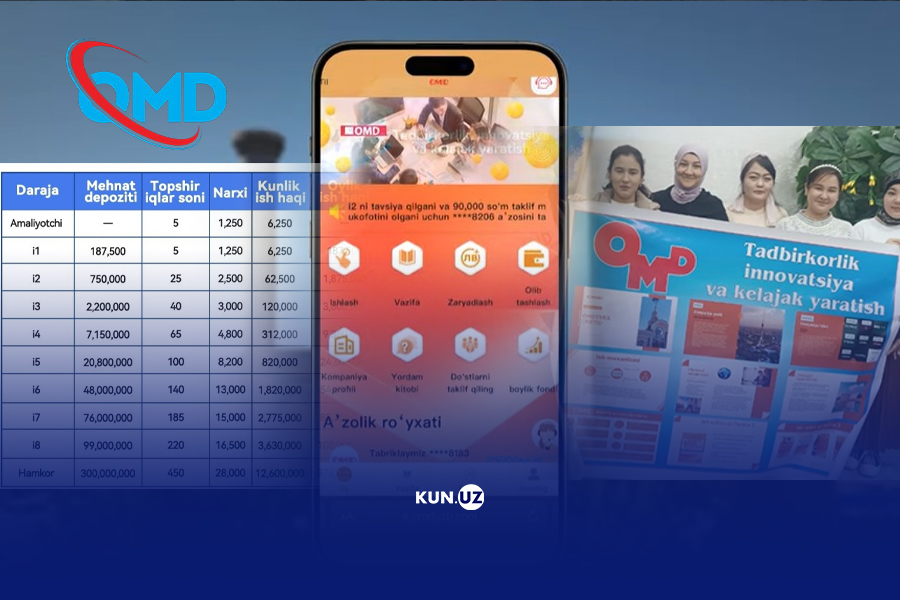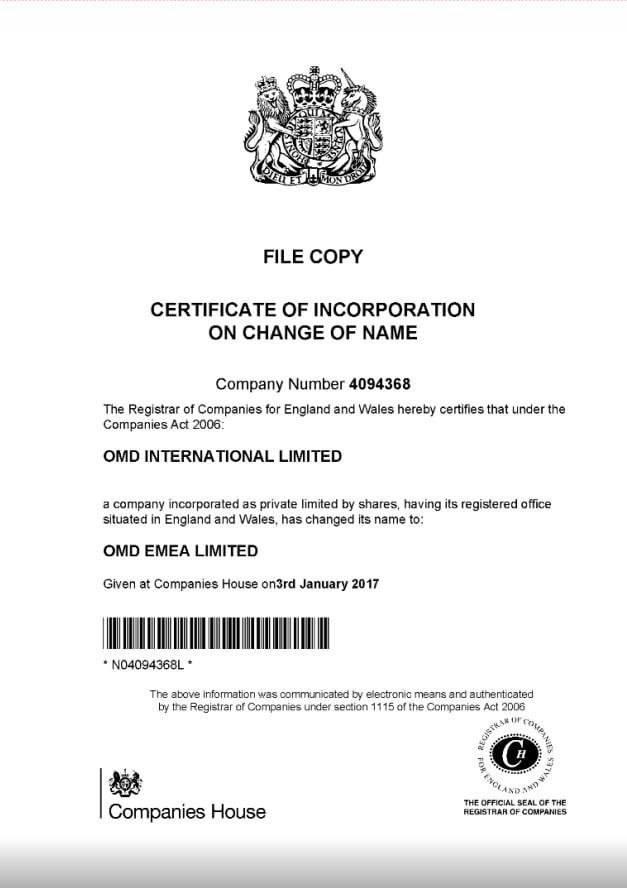New financial scam in Uzbekistan swindles billions through fake book reading platform
Uzbekistan is increasingly becoming a “cash cow” for international fraudsters. A new financial pyramid scheme under the name OMD has deceived thousands with the false promise of “earning money by reading books,” stealing billions of UZS in the process. Payments were made via P2P transfers to bank cards registered under various individuals’ names. Law enforcement agencies are still chasing the scammers, who remain on the run.

Photo: KUN.UZ
The next trap
Financial pyramid schemes continue to proliferate in Uzbekistan, and the number of victims shows no sign of decreasing. Naive and unsuspecting people remain easy prey for fraudsters operating from across the globe.
Thousands of people – mainly from the Ferghana Valley – fell victim to this new scheme, losing millions of UZS in the process.
OMD, the name behind the latest fraud, was aggressively promoted across social media platforms. Most of the promotional videos were translated into Uzbek and voiced using artificial intelligence. Ironically, the poor translation quality alone should have raised red flags. Still, many trusted the flashy marketing and got caught in the trap.
Unverified information
It was claimed that OMD was registered in the UK in January 2017. As proof, a fake certificate – one that even a schoolchild could forge – was circulated.

One promotional claim said:
“The company is collaborating with the Uzbek government to reduce unemployment. OMD will provide jobs to 6 million Uzbeks in the next five years.”
These claims could have been easily verified. If the government truly partnered with such a company, there would have been coverage in the media or information available on official government websites. The inflated figures alone should have raised suspicions.
To make the operation seem legitimate in Uzbekistan, a certificate was also circulated for a private enterprise named “Tagob OMD.”
This family-run business was officially registered on 14 February 2025 in the Uzbekistan district of the Fergana region. It was listed as a publishing company. Its founder and director is Shalola Quldosheva.
Old tactics in new disguise
OMD used a scheme similar to other pyramid scams like Parker (power bank rentals), Whats, Aif, and HNK, which promised money in exchange for watching videos. OMD adopted a comparable platform but framed it as “reading books to earn money.”
Users had to invest money based on “levels.” As the level increased, so did the amount of money to be invested and the number of tasks required. For instance:
- At level i2, users invested 750,000 UZS to complete 25 tasks, with a promised return of 62,500 UZS per day or 22.5 million UZS annually.
- At level i8, users invested 99 million UZS to complete 220 tasks, with a promised annual income of 1.3 billion UZS.
Some scammers even “appointed” individuals to managerial roles to gain trust among victims and drive more recruitment and investments.
Easy money, easy theft via P2P
Another hallmark of the OMD platform was the ease with which invested funds were transferred via P2P to bank cards registered under different individuals’ names.
The process was simple:
- Register on the platform using a phone number.
- Choose an investment level.
- Transfer money to a list of bank cards linked to the selected level.
All the linked bank cards belonged to various people.
How these cards ended up in the hands of the fraudsters remains unclear. Several possibilities exist:
- An insider at a bank opened accounts using leaked personal data.
- SIM card sellers may have leaked personal information.
- Fraudsters may have purchased dormant but still-active cards from their original owners.
“I took a loan to invest”
Among the victims were people from all walks of life, including teachers.
One teacher, who requested anonymity, told Kun.uz:
“I didn’t even realize I was being scammed. I came across their ads on social media. I study and work at the same time, and I pay tuition out of pocket. Hoping to make extra income, I took out a loan and invested. I did the tasks, but when it came time to withdraw money, they claimed it was a holiday. The next week, they said there was a tax inspection. The third week, they gave another excuse. That’s when I realized it was a scam. I never got my money back.”
Kun.uz spoke with dozens of other victims. Some had handed over 40–50 million UZS. The total damage likely reaches several billion UZS.
“More people, more money”
The masterminds behind pyramid schemes aim to attract as many people as possible in the shortest amount of time using aggressive promotional strategies.
Beyond social media ads, they often conduct outreach events within various organizations. For example, HNK even entered schools and kindergartens.
OMD followed a similar path, holding promotional events at workplaces—a fact evidenced by photos posted on their website. Yet these activities went unnoticed by relevant authorities.
The deception continues
Earlier in 2024, the Parker pyramid scheme was rampant. Kun.uz warned readers during its peak, but many still fell for the scheme, seeing that it had branches across the provinces and even state-registered LLCs.
After Parker, another suspicious project called Sun Eco emerged, urging people to invest in solar panels.
Other schemes like Blue Culture, Dari Poluchay, Charoit, Ubuntu, Imalliance, and New Millennium also appeared, all promising quick and massive returns.
Kun.uz had previously warned the public about Aif and Whats, exposing them as pyramid schemes and urging people not to invest. Sadly, many still ignored the warnings and fell prey.
The fraudsters are Always one step ahead
Once again, the damage is done. Many people have been duped and left empty-handed, while law enforcement waits for formal complaints before initiating criminal cases.
In the past 1–2 years, several pyramid schemes have defrauded thousands. In every case, criminal proceedings began after the scammers made off with the money. For example, only after angry victims of Aif surrounded the Khorezm police department did an official investigation begin.
The continued passivity of oversight agencies – despite thousands being conned – remains a pressing concern. Isn’t it more important to prevent such crimes rather than merely respond after the fact?
Kun.uz once again urges citizens not to trust dubious programs or hand over their money so easily.
Related News

11:39
Scrap dealer who used online platform to defraud sellers detained following Kun.uz investigation

09:59 / 03.06.2025
Interpol fugitive deported from U.S. to Uzbekistan over major fraud allegations

14:59 / 27.05.2025
MIA launches investigation into 209 billion UZS real estate fraud case

14:28 / 26.05.2025



